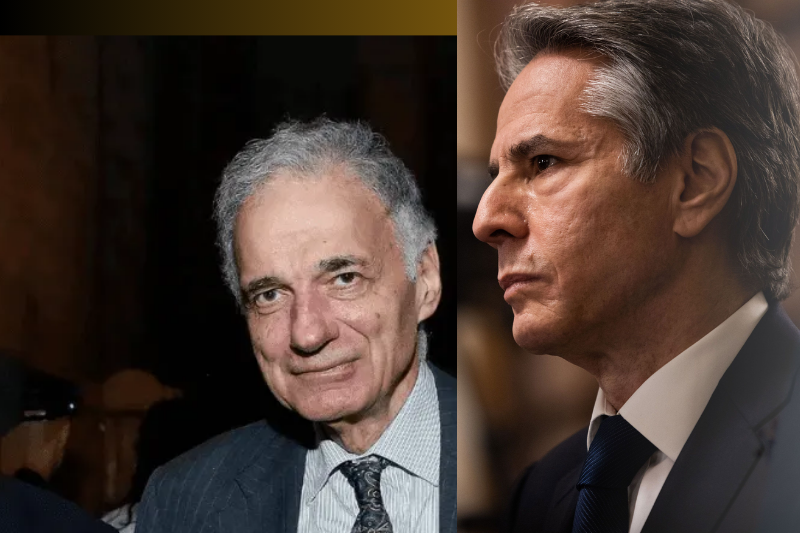
Unraveling the Accusation: Ralph Nader vs. Antony Blinken
The recent accusation by Ralph Nader against U.S. Secretary of State Antony Blinken has ignited a firestorm of controversy, placing the spotlight on the nuanced dynamics of antisemitism and its intersection with political discourse. Nader, a lawyer of Lebanese descent and a four-time failed U.S. presidential candidate, took to Twitter to assert that Blinken is guilty of “antisemitism against Arab-Palestinians.” Let’s delve into the layers of this intricate controversy.
Ralph Nader’s Bold Assertion
Nader’s accusation hinges on Blinken’s perceived bias in addressing the humanitarian crisis in Gaza. The lawyer contends that while Blinken strongly condemned the targeting of heat, water, and electricity in Ukraine as “brutalization” and “barbaric,” he failed to employ similar emphatic language when addressing the dire situation of civilians in Gaza. Nader’s tweet has become a focal point, prompting a broader discussion and scrutiny of Blinken’s statements and actions.
Blinken’s Silence and Its Implications
As of now, Antony Blinken has not directly responded to Nader’s accusation. This silence raises critical questions about Blinken’s stance on the Israeli-Palestinian conflict and whether there is merit to Nader’s claim. Analyzing Blinken’s overall approach becomes paramount in understanding the complexities of this unfolding narrative.
Nader’s History of Accusations
Ralph Nader’s outspoken stance against what he perceives as antisemitism extends beyond Blinken, encompassing broader issues involving Muslims and U.S. companies. The lawyer has criticized corporate entities for alleged discriminatory practices against individuals who voice opposition to Israel’s actions in Palestine. This consistent position by Nader prompts an exploration of its implications on both political and corporate levels.
Corporate Influence and Freedom of Speech
Nader’s claim that corporations are sidelining individuals critical of Israel’s policies raises concerns about freedom of speech and employment opportunities. Examining the extent to which such actions impact the professional lives of dissenting voices becomes crucial, shedding light on the delicate intersection of corporate interests and political discourse.
Political Figures and the Antisemitism Discourse
Nader’s accusations extend beyond Blinken to include high-profile figures like President Joe Biden, Nancy Pelosi, and what he terms “AIPAC Democrats.” Understanding the broader context of these accusations and Nader’s call for congressional hearings featuring Israeli and Palestinian peace advocates adds depth to the ongoing conversation about antisemitism in political circles.
Keep Reading
John Bolton and the Multifaceted Accusations
Ralph Nader’s characterization of John Bolton as a bigot against Arabs and an Islamophobe adds complexity to the narrative. Exploring James Zogby’s perspective on Bolton’s actions brings nuance to Nader’s claims and facilitates a comprehensive evaluation of antisemitism allegations within the broader spectrum of U.S. politics.
In conclusion, Ralph Nader’s recent accusation against Antony Blinken serves as a catalyst for a broader conversation about antisemitism, particularly concerning Arab-Palestinians. The intricacies within these allegations emphasize the necessity for a nuanced approach to discussions surrounding sensitive geopolitical issues. As the discourse unfolds, it underscores the challenges of navigating a landscape where political, cultural, and historical dimensions intersect.




